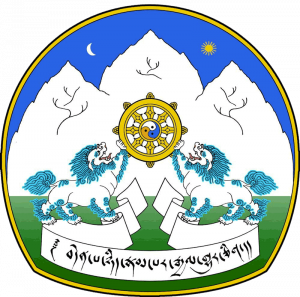Introduction
Department of Education is one of the seven main departments of the executive organ of the Central Tibetan Administration (CTA) based in Dharamsala, India. It was established in 1960 to look after the educational affairs of the Tibetan administration and community in exile. After coming into exile in 1959, His Holiness the XIV Dalai Lama had given top priority to education and requested the then Indian Prime Minister Pandit Jawaharlal Nehru for establishing separate schools for Tibetan refugee children.
The heart purpose of establishing separate schools for Tibetans in India was for provision of quality modern education and preservation of the Tibetan language and culture at the same time. This idea is commonly referred to as the twin-object of the Tibetan schools in exile and became the heart and soul of the Tibetan education policy. The overall level of success towards that object over the past 60 years has remained remarkably high.
The Department of Education currently oversees 64 Tibetan schools – excluding the pre-primary sections and private schools – in India and Nepal under different autonomous administrative bodies. There are around 16,553 students and 2,154 staff members in these schools. The autonomous school administrative bodies include: Central Tibetan Schools Administration (6 schools), Tibetan Children’s Villages (16 schools), Tibetan Homes Foundation (4 schools), Sambhota Tibetan Schools Society (29 schools), and Snow Lion Foundation (9 schools).
Despite miraculous past achievements, a general sense of dissatisfaction and a growing number of new challenges – some of which were of serious nature – began to surface during the last two decades. As a long-term measure against those challenges, the CTA framed a ‘Basic Education Policy’ in 2004 for implementation by the Department of Education and different school bodies. To this end and for various other purposes related to education and welfare of Tibetan refugee children, the Department of Education performs the following functions:
Functions
- to initiate and monitor necessary changes in teaching methodology in schools,
- to run teacher education and in-service teacher training programs,
- to provide policy and administrative direction and guidance to schools,
- to develop and review school curricula, textbooks and other materials,
- to provide guidance and counseling to students, teachers and parents,
- to raise and provide scholarships for school and university education,
- to co-ordinate sponsorship program for orphans and other needy children,
- to develop, translate and publish children’s books and periodicals,
- to provide grants to schools and autonomous school bodies,
- to convene conferences and seminars on education,
- to recruit students for overseas study programs,
- to co-ordinate teacher and student exchange programs,
- to review and evaluate the standard of learning in schools, and
- to award prizes and certificates to meritorious students and teachers.
